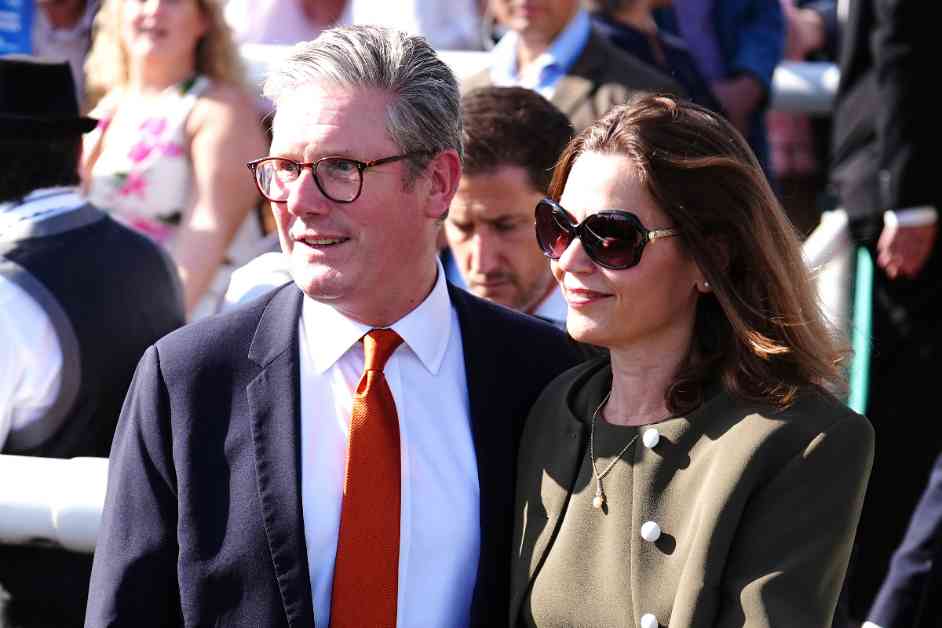Supporting Starmer’s Fashion Choices: How Donated Clothes Helped, According to Lammy
Keir Starmer, leader of the Labour Party, has been making headlines not only for his political decisions but also for his fashion choices. Recently, it has come to light that some of his outfits have been sourced from donated clothes, a move that has garnered both praise and curiosity from the public. In a recent interview, Labour MP David Lammy shed some light on how these donated clothes have helped Starmer and what it means for the fashion industry as a whole.
The Impact of Donated Clothes on Starmer’s Image
Starmer’s decision to wear donated clothes has sparked a conversation about sustainability and ethical fashion in politics. By opting for pre-loved garments, he is not only reducing waste but also sending a powerful message about the importance of conscious consumerism. This move has not only endeared him to environmentally conscious voters but has also helped shape his image as a leader who practices what he preaches.
According to Lammy, the public’s response to Starmer’s fashion choices has been overwhelmingly positive. “People appreciate authenticity and integrity in their leaders. By wearing donated clothes, Starmer is showing that he is in touch with the concerns of everyday people and is willing to make a statement through his actions,” Lammy explained. This shift towards more sustainable fashion choices is not only beneficial for the environment but also for Starmer’s image as a relatable and responsible leader.
The Role of Donated Clothes in Promoting Sustainable Fashion
The fashion industry is notorious for its environmental impact, from the use of harmful chemicals in production to the massive amounts of waste generated by fast fashion. By choosing to wear donated clothes, Starmer is setting an example for other politicians and public figures to follow suit. This move highlights the importance of reusing and recycling clothing to reduce the industry’s carbon footprint and promote a more sustainable approach to fashion.
Lammy emphasized the significance of Starmer’s choice in the larger context of promoting sustainable fashion. “We need leaders who are willing to take a stand on important issues like climate change and ethical consumerism. By wearing donated clothes, Starmer is not only making a personal statement but also encouraging others to think about the impact of their fashion choices,” Lammy stated. This shift towards more sustainable practices in the fashion industry is crucial for addressing the environmental challenges we face today.
The Future of Fashion and Politics
Starmer’s embrace of donated clothes has sparked a larger conversation about the intersection of fashion and politics. As public figures, politicians have a unique platform to influence trends and promote positive change in the fashion industry. By choosing to wear donated clothes, Starmer is not only making a statement about sustainability but also challenging the status quo of consumerism and excess in politics.
Lammy highlighted the potential impact of Starmer’s fashion choices on future political campaigns. “In a world where image matters, politicians have a unique opportunity to use their fashion choices to connect with voters and promote important issues,” Lammy explained. This shift towards more sustainable and ethical fashion practices in politics could have a lasting impact on how leaders engage with their constituents and shape public perception.
In conclusion, Keir Starmer’s decision to wear donated clothes has sparked a larger conversation about sustainability, ethics, and the intersection of fashion and politics. By making conscious fashion choices, he is not only setting an example for other politicians but also promoting a more sustainable approach to clothing consumption. As public figures continue to influence trends and shape public opinion, the impact of their fashion choices on the industry and society at large cannot be underestimated.












